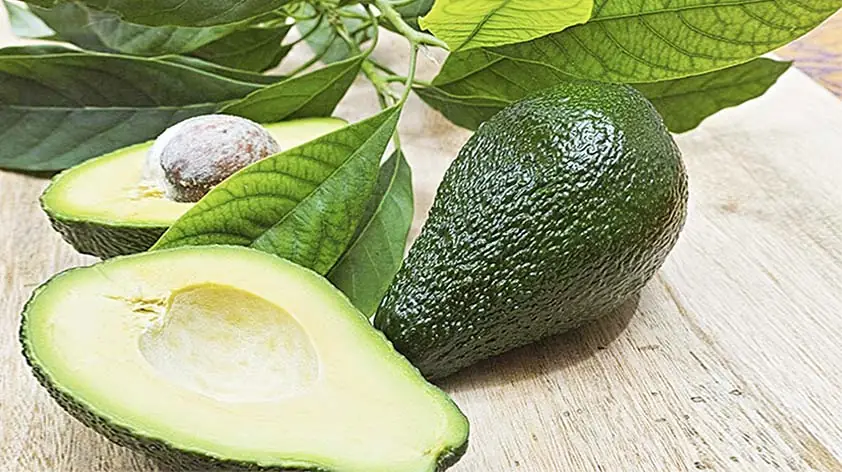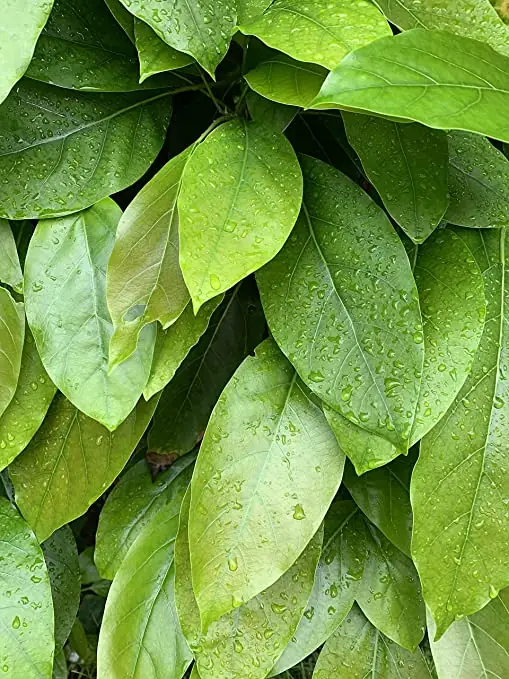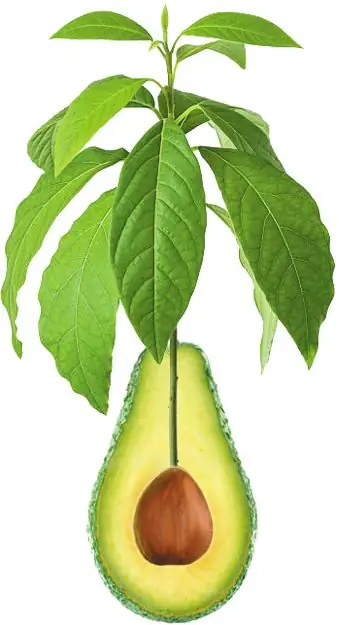20 Health Benefits of Avocado Leaves: A Detailed Review

While you almost surely know that avocados are very good for your health, teas from the plant’s leaves and seeds are still a novelty. So, is it true that there are 20 health benefits of avocado leaves and seeds? How do you prepare avocado leaf tea? Here are the answers to these — and numerous other — questions.
What Can Avocado Leaves Cure?
You can find very long lists of alleged beneficial effects of leaves and seeds of this plant on numerous websites. Among the top 20 health benefits of avocado leaves such properties are usually listed:
- lowering blood sugar
- weight loss promotion
- anti-ulcer effect
- reduction of oxidative stress
- kidney stones treatment
- digestive health boost
- immune system support.
Unfortunately, despite the vociferous claims of numerous proponents, there is still almost no real scientific evidence for the beneficial properties of avocado teas. As of now, these beverages cannot be recommended for improving any health condition or promoting general wellness: so much for the impressive top 20 list!
Although the leaves of the plant have been used in Latin American cuisine for a very long time, they were traditionally believed to be a spice and not something you could use for making herbal tea.

How Do You Prepare Spices from Avocado Leaves?
To turn a fresh avocado leaf into an anise-resembling spice, you need to toast it and add it (either whole or crumbled) to your dish. Alternatively, you can dry it out and either break it into small pieces or powder it completely. Such a spice is traditionally used with black beans.
Herbal teas from various parts of the plant came into vogue only very recently. The reason why this did not happen before lies in their chemical composition.
The Chemical Composition of Avocado Leaves and Seeds: Benefits and Side Effects
The proponents of the leaves and seeds of the plant say that they are rich in a powerful antioxidant from a flavonoid group called quercetin as well as other flavonoid compounds, numerous saponins, polyphenols, tannins, alkaloids, and steroids. For this reason, they make an assumption that leaf tea is bound to have positive effects on health — as many as 20 of them accordoing to some people.
Scientifically-Based Benefits
Unfortunately, scientific research into the properties of the various parts of the plant is very limited and was almost exclusively conducted either in vitro (i.e., in an artificial environment outside a living organism) or on rodents (rats and mice). Still, the results of the tests are very promising.
Thus, 1998 in vitro study showed that leaf extract could inhibit the growth of herpes and adenovirus type 3. In a 1999 study, the same extract was intravenously administered to rats which led to a marked decrease in arterial blood pressure. In another series of tests on rats, leaf extract was found to be effective in protecting the liver from the harmful action of paracetamol, and the same tests have demonstrated that leaf extract of the plant is very rich in antioxidants.
The research into the properties of leaf extract of the plant continued in the 2000s. In a 2002 study on mice, the leaf extract demonstrated strong analgesic and anti-inflammatory effects. A 2006 study on mice demonstrated that leaf extract possesses an anticonvulsant property. In a 2004 study on rats it was observed that leaf extract has antiulcer properties. Tests on rats conducted in 2005 demonstrated that leaf extract can lead to reduction in blood glucose levels. Last but not least, in a 2007 study rats who were given leaf extract managed to lose extra weight.
Unfortunately, all these results do not really mean that the benefits of avocado leaves for the treatment of diabetes (or any other condition) in humans are well-established and enormous. The only way they can be interpreted is that additional research into their effects on the human body is required: it is only then that we will be able to state confidentlhy that they indeed offer 20 important health benefits.
Last but not least, there are some important side effects of avocado leaves that also need to be mentioned.

Toxic Effects on Animals
Avocado leaves, bark, skin, and seed (but not the fruit’s ripe pulp) contain high quantities of an oil-soluble toxin called persin. Persin protects the tree from being eaten by fungi as well as various kinds of animals and birds. Animals who eat various parts of the avocado tree may suffer from mastitis, arrhythmia, decreased milk production, and stomach upset. What’s more, there are reports that high amounts of such food have been fatal to goats and that the plant’s leaves thrown in a pool have killed the fish there.
Are avocado leaves poisonous to humans? The amount of persin you get when using the plant’s leaf as a spice is very small. What’s more, as persin is an oil-soluble compound, leaf teas that are brewed using water cannot, in theory, absorb any significant quantities of it.
On the other hand, if there are some small parts of the leaf in your cup, and you consume a lot of leaf tea day after day, you might get more persin than is tolerable. As there is currently no scientific research into the safety of this beverage to humans, to be on the safe side health experts recommend not to consume more than one or two cups of such tea per day.
How Do You Prepare Avocado Leaves and Seeds Tea
It will take you just a few minutes to learn how to prepare avocado leaves tea. Still, there are several versions of the recipe. Here is the easiest one:
- Use dried leaves
- Add 3 or 4 of them to the pot (about 0.5 liters or 2 cups)
- Add boiling water and leave the tea for 10 to 20 minutes to steep
And here is the more time-consuming version of the recipe that results in very strong tea that is presumably even more healthy:
- Use fresh leaves
- Wash 4-5 of them
- Add them to a pot and add 2 cups (about 0.5 liters) of water
- Put the pot on the stove, bring the water to a boil and let it simmer
- How long do you boil avocado leaves? While some people merely wait for 10 minutes, others wait for more than 20 minutes — till the water is reduced by half.
To make the taste of the tea more palatable, you can add any sweetener you like. Then again, if you are on a diet and limit your carbohydrate consumption, stevia or erythritol will be a better choice than sugar or honey.
As for the seeds of the plant, preparing them takes a little longer and requires more effort. First, you need to prepare the pit:
- Slice your fresh fruit and remove the pit
- Put the pit in a pot, add water, and bring it to the boil
- Let the water simmer till the pit gets soft. Five minutes is usually enough. Use a long wooden spoon to determine whether it is soft enough.
- Remove the pit, let it cool, and slice it into small pieces
- Grind these pieces in a food processor.
Now that you have ground seeds, you can start brewing seed tea:
- Add the whole amount of powder to a pot with boiling water (2 cups)
- Let the water simmer for 5-8 minutes
- Strain the tea and pour it into cups
Even if you are anxious to try out the alleged avocado leaf tea benefits for yourself, start with small quantities of this beverage (like a third of a cup) to prevent possible allergy or gastrointestinal issues.

FAQs
Here are some commonly asked questions about the properties of leaf tea.
Do Avocado Leaves Have Benefits for Hair?
As of now, there are no clinical studies that would confirm that rinsing hair using leaf/seed tea or applying these teas directly to the skin can improve symptoms of any health condition. On the other hand, avocado oil (which is derived from the fruit’s ripe pulp, not from any other parts of the plant) is believed by many to be excellent oil for massage and skin/hair care. Thus, until there are new scientific findings, it is more reasonable to use oil, not tea.
Where Can I Buy Avocado Leaves?
First, you can shop online: there are several websites on the Internet (including such giants as Amazon and eBay) that sell them.
Second, you might try ethnic and healthy food markets in your local area.
Last but not least, you might consider growing avocados in pots to have your own — and fully sustainable — source for them.
How Do These Teas Taste?
The taste of leaf tea is often described as “earthly, smooth, and buttery.” It can be compared with green tea, but with no bitter aftertaste.
Seed tea is a bit bitter, so you might need a sweetener to make it more pleasant.
Conclusion
While this new beverage may be all the rage these days, medical science still does not confirm that there are indeed 20 real health benefits of avocado leaves tea. Although there are some promising studies on rodents, the lack of experiments on humans and the presence of a potent toxin make it necessary to treat this beverage with reasonable caution. Only drink one or two cups of it per day.